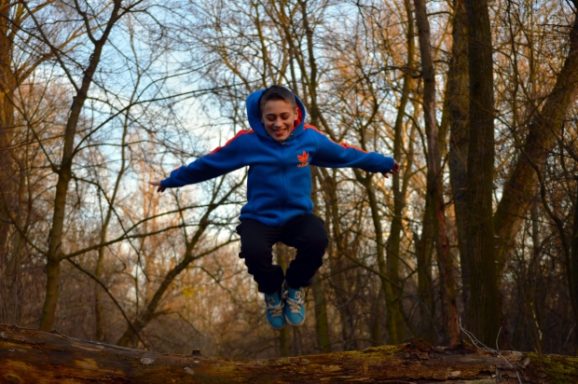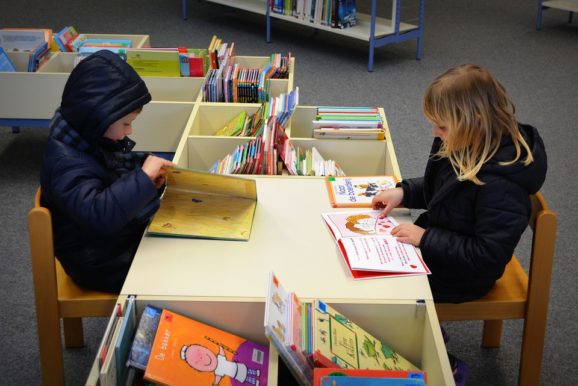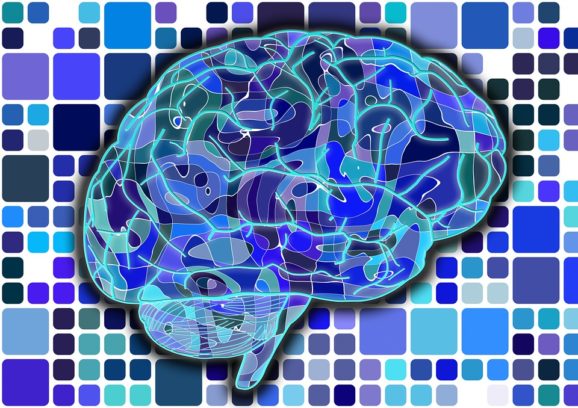When I teach math, if the objective involves problem solving, I never use the problems in the book as my initial examples. Most do not have any real meaning for students. Continue Reading…
When I teach model lessons to K-12 students, I always play classical music before the lesson begins. If I am teaching elementary students, I go to each desk and introduce myself while they are listening to music. If the students are in middle or high school, I am at the door to greet them as they change classes. Continue Reading…
When students move while learning, they put information in procedural or muscle memory. Procedural memory is one of the strongest memory systems in the brain and the reason that one seldom forgets how to drive a car, ride a bicycle, play the piano, type on a keyboard, tie one’s shoes, or brush one’s teeth. Continue Reading…
IVAN CAPP: Interjection, Verb, Adjective, Noun, Conjunction, Adverb, Pronoun, Preposition (Language arts)
HONC if you’re alive! Hydrogen, Oxygen, Nitrogen, Carbon (Science) Continue Reading…
The use of the hands and brain activity are so complicated and interconnected that no one theory explains it. I can’t explain it either! I just know that some students need to have their hands involved before their brains can understand.
“Did you hear about the mathematician who’s afraid of negative numbers? He’ll stop at nothing to avoid them.”
If the math pun above made you laugh or even smile a little, it put your brain in a more positive state. Research tells us that jokes, riddles, celebrations, and other forms of positive interaction not only create a positive learning environment but may also facilitate learning itself. Continue Reading…
20 Instructional Strategies That Engage the Brain: #5 Graphic Organizers, Semantic Maps, & Word Webs
Whether referred to as concept, mind, or semantic maps or as word webs, graphic organizers are one of the best friends of a teacher who desires to facilitate the comprehension of students’ brains, so they are beneficial to all. Continue Reading…
As I travel around the United States presenting, I am realizing that the fun has gone out of teaching and learning in so many classrooms. With increased emphasis on standardized testing, benchmarks, and accountability, school is just not fun anymore! Continue Reading…
A while back, I was invited to present for the Honolulu Association for Supervision and Curriculum Development. My husband and I went one week earlier than the day on which I was to present so that we could enjoy the scenic beauty and historical significance of our 50th state. I will never forget spending one of those days at Pearl Harbor. Continue Reading…
I worked for 30 years with a major school district in the metropolitan Atlanta area. Even though I have been retired from that system since 2003, I still have a vested interest in the district. I have a granddaughter who goes to school in the district and a son-in-law who teaches physical education there. I was very concerned when I looked at the headlines of a neighborhood newspaper that arrived at my house. Continue Reading…
Thousands of years of history support one major concept: When students are actively engaged in experiences with content, they stand a much better chance of learning and remembering what we want them to know. Continue Reading…
I once heard a brain consultant by the name of Fritz Mengert say that if he had to choose between putting his grandchild in a day care center where teachers rock, hold, and hug children or one where academics are emphasized over all else, the decision would not be a difficult one. Continue Reading…
“The more that you read, the more things you will know. The more you learn, the more places you’ll go.”— Dr. Seuss
A woman once asked Albert Einstein how she could make her son more intelligent. His response? Read him fairy tales. Continue Reading…
Success in school depends on many factors for students, but one of the most important areas that can be overlooked is proper physical health practices that encourage healthy brain development. The brain is a demanding organ. It comprises only 2% of the total body weight, but consumes 8 to 10 times more oxygen and glucose than any other organ in the body. This is why we must do everything we can to protect this vital part of our body. Sadly, some people have had the health of their brains compromised as a consequence of incurring an injury. Luckily, brain injury lawyers try their best to seek justice in a legal sense retrospectively. If our bodies don’t receive the proper nutrition they need, the brain is the first to suffer. Continue Reading…
Whether you are a teacher delivering instructions to students or a student attempting to retain information for a class, there are 20 cross-curricular strategies that take advantage of the way all brains learn best. They are as follows:
According to brain research, there are simple things you can do to create a calming, stress-relieving environment for you, your family, and even students in a classroom.
Relationships are everything! Familial and friend relationships, workplace relationships, and spiritual relationships all make a tremendous difference in our lives.
When you look at the first chapter in my best-selling book on classroom management, Shouting Won’t Grow Dendrites: 20 Detours Around the Danger Zones, you will find that the first chapter is titled, “Develop a Relationship with Each Student.” Continue Reading…
















